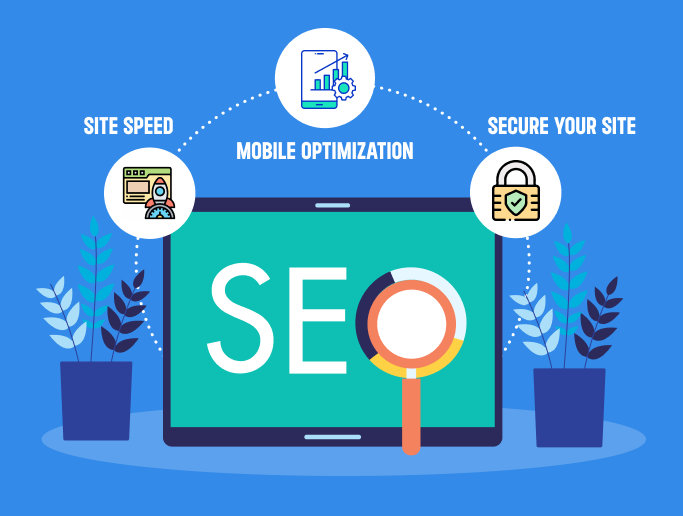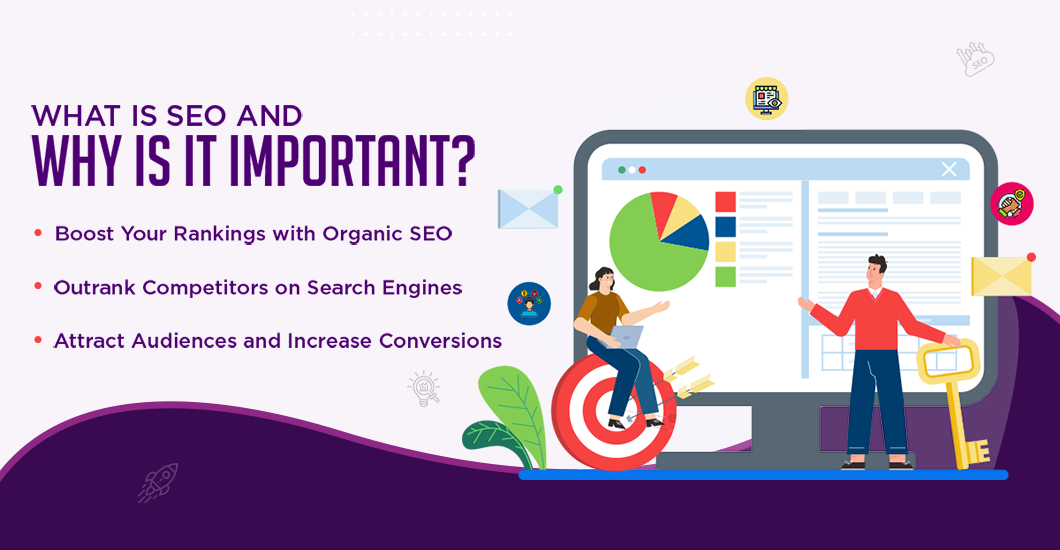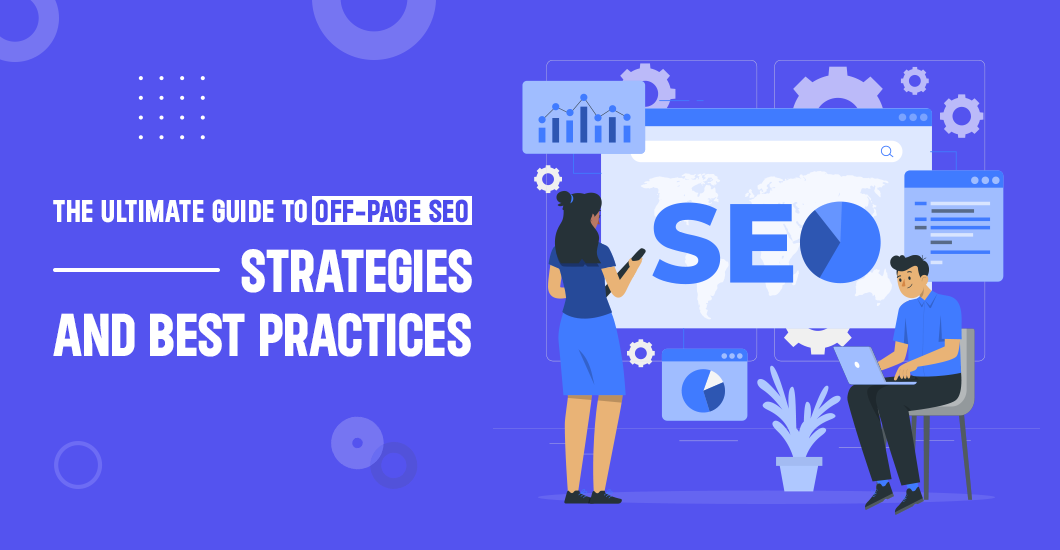Introduction
In the digital age, establishing a robust online presence is critical for businesses, entrepreneurs, and content creators. With millions of websites competing for attention, how can you ensure that your website stands out and attracts the right audience? This is where Search Engine Optimization (SEO) comes into play. Understanding SEO and its importance can be the key to your online success. In this comprehensive guide, we’ll explore what SEO is, how it works, and why it’s indispensable for your website.
What is SEO?
SEO stands for Search Engine Optimization. It is the process of enhancing your website to increase its visibility when people search for products, services, or information related to your business on search engines like Google, Bing, and Yahoo. The primary goal of SEO is to improve your site’s rankings in search engine results pages (SERPs), driving more organic (non-paid) traffic to your site.
SEO encompasses various techniques and strategies, broadly categorized into four main areas:

1. Keyword Research
Keyword research is the foundation of SEO. It involves identifying the terms and phrases that potential customers use when searching for products or services similar to what you offer. By understanding and targeting these keywords, you can create content that aligns with what users are searching for, thereby increasing the chances of your site appearing in relevant search results.
2. On-Page SEO
On-page SEO refers to the optimization of individual web pages to rank higher and earn more relevant traffic in search engines. This includes:
- Content Quality: Creating high-quality, valuable content that addresses the needs and interests of your audience.
- Keyword Optimization: Incorporating target keywords naturally into your content, titles, headings, and meta descriptions.
- User Experience (UX): Ensuring your website is easy to navigate, loads quickly, and is mobile-friendly.
- Internal Linking: Using internal links to guide visitors to other relevant pages on your site, helping search engines understand your site’s structure.
3. Off-Page SEO
Off-page SEO involves activities outside your website that influence your rankings within search engine results. The primary focus here is on building high-quality backlinks from reputable websites. Backlinks act as votes of confidence from other sites, signaling to search engines that your content is valuable and trustworthy. Other off-page SEO strategies include social media marketing, influencer outreach, and guest blogging.
4. Technical SEO
Technical SEO ensures that your website meets the technical requirements of modern search engines. It involves optimizing the site’s infrastructure to improve its crawling and indexing by search engines. Key aspects of technical SEO include:
- Site Speed: Ensuring your website loads quickly to reduce bounce rates and improve user experience.
- Mobile-Friendliness: Making sure your site is responsive and works well on all devices, including smartphones and tablets.
- Sitemap and Robots.txt: Providing clear instructions to search engines on how to crawl and index your site’s content.
How Does Search Engine Optimization Work?
Search Engine Optimization (SEO) works by improving your website’s visibility on search engines like Google. It involves optimizing your content with relevant keywords, improving site structure, and ensuring fast loading speeds. Search engines crawl your site, analyze keyword usage, and rank pages based on relevance and authority. Using targeted SEO search keywords helps your content appear in front of users actively looking for your products or services, increasing organic traffic and potential conversions.
Why is SEO Important?
SEO is crucial for a variety of reasons, all of which contribute to your website’s overall success and visibility. Here are some of the key reasons why SEO is important:

1. Increased Visibility and Traffic
The primary goal of SEO is to improve your website’s visibility in search engine results. Higher visibility means more traffic to your site. When your website appears at the top of search results, it is more likely to attract clicks from users, leading to increased organic traffic. Unlike paid advertising, the traffic generated through SEO is free and sustainable over the long term.
2. Credibility and Trust
Websites that rank higher on search engine results pages are generally perceived as more trustworthy and credible. Users trust search engines to deliver relevant and authoritative results, so appearing at the top positions in SERPs can enhance your site’s credibility. High-quality content, a well-optimized site, and positive user experiences contribute to building trust with your audience.
3. Better User Experience
SEO isn’t just about search engines; it’s also about providing a better experience for your users. Search engines prioritize websites that offer a positive user experience, which includes fast load times, easy navigation, mobile-friendliness, and engaging content. By focusing on these elements, you can improve user satisfaction and retention, which in turn can boost your search rankings.
4. Cost-Effectiveness
Compared to other marketing strategies such as pay-per-click (PPC) advertising, SEO is relatively cost-effective. While it requires an initial investment in time and resources, the long-term benefits of a well-implemented SEO strategy can provide a high return on investment (ROI). Once your site ranks high in search results, you can continue to attract traffic without ongoing advertising costs.
5. Competitive Advantage
In the competitive online market, SEO can give you an edge over your competitors. By optimizing your site, you ensure that it stands out in the search results, attracting more customers than businesses that neglect SEO. Staying ahead of the competition means continuously monitoring and adapting your SEO strategy to keep up with changes in search engine algorithms and industry trends.
6. Insights into Customer Behavior
SEO provides valuable data about your audience. Through tools like Google Analytics, you can gain insights into what keywords your visitors are using, how they are interacting with your site, and what type of content they prefer. This information can be used to refine your marketing strategies further and tailor your content to better meet the needs of your audience.
7. Local SEO for Increased Engagement
For businesses with a physical presence, local SEO is particularly important. Local SEO focuses on optimizing your website to appear in local search results. This includes optimizing your Google My Business profile, acquiring local backlinks, and ensuring your NAP (Name, Address, Phone number) information is consistent across the web. Local SEO helps attract customers who are searching for products or services in your geographic area, driving foot traffic and local engagement.
8. Long-Term Strategy
SEO is a long-term strategy that builds momentum over time. While you may not see immediate results, the efforts you put into SEO can pay off in the long run. Unlike paid advertising, which stops generating traffic once you stop paying, SEO continues to attract organic traffic as long as your content remains relevant and optimized.
How to Implement an Effective SEO Strategy ?
Implementing an effective SEO strategy requires a combination of planning, execution, and continuous optimization. Here are some steps to get you started:
1. Conduct a Website Audit
Before you begin optimizing your site, conduct a comprehensive audit to identify areas that need improvement. This includes evaluating your site’s technical aspects, content quality, keyword usage, and backlink profile. Tools like Google Analytics, Google Search Console, and third-party SEO audit tools can help you gather valuable data.
2. Perform Keyword Research
Keyword research is the foundation of any SEO strategy. Use tools like Google Keyword Planner, SEMrush, or Ahrefs to identify relevant keywords for your industry. Focus on finding keywords with a good balance of search volume and competition. Create a list of target keywords to guide your content creation and optimization efforts.
3. Optimize On-Page Elements
- Content: Create high-quality, engaging content that addresses the needs and interests of your audience. Use target keywords naturally throughout your content, but avoid keyword stuffing.
- Meta Tags: Optimize your title tags, meta descriptions, and headers with relevant keywords. These elements help search engines understand the context of your content and improve click-through rates from search results.
- URL Structure: Use clear, descriptive URLs that include target keywords. Avoid using long, complex URLs with unnecessary parameters.
4. Improve Technical SEO

- Site Speed: Optimize your site’s load times by compressing images, using browser caching, and minimizing HTTP requests. Fast-loading sites provide a better user experience and are favored by search engines.
- Mobile Optimization: Ensure your website is responsive and performs well on mobile devices. Use Google’s Mobile-Friendly Test to check your site’s mobile compatibility.
- Secure Your Site: Use HTTPS to secure your website. A secure site builds trust with users and can positively impact your search rankings.
5. Build High-Quality Backlinks
Acquire backlinks from reputable websites in your industry. Focus on creating valuable content that others want to link to, such as blog posts, infographics, and research reports. Reach out to influencers and industry leaders to promote your content and earn backlinks.
6. Leverage Local SEO
If you have a local business, optimize for local search by claiming and optimizing your Google My Business profile. Encourage satisfied customers to leave positive reviews, and ensure your business information is consistent across online directories.
7. Monitor and Analyze Performance
Continuously monitor your website’s performance using tools like Google Analytics and Google Search Console. Track key metrics such as organic traffic, bounce rates, and keyword rankings. Analyze this data to identify trends, strengths, and areas for improvement.
8. Stay Updated with SEO Trends
SEO is an ever-evolving field, with search engine algorithms frequently changing. Stay informed about the latest SEO trends and best practices by following industry blogs, attending webinars, and participating in SEO forums. Regularly update your strategy to adapt to changes in search engine algorithms and user behavior.
Conclusion
SEO is super important for your website. It helps more people find you online, boosts your credibility, and leads to more sales or visitors. But it’s not a one-time thing – you need to keep tweaking and improving it. That’s where Webgarh Solutions comes in! They’re experts who can help you make the most of your online presence. So, team up with them to make sure your website shines bright on the internet!






















